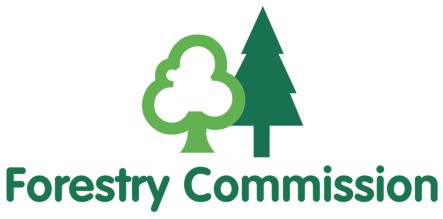Plant Health News - April 2024
Updated 13 February 2025
Border Target Operating Model Implementation
The Border Target Operating Model (BTOM) continues the phased approach of biosecurity controls to the import regime of plants and plant products moving from the EU, Switzerland and Liechtenstein to GB. The first phase of BTOM import controls came into force on 31 January 2024 and the next date where new controls will be implemented is 30 April 2024.
From 30 April 2024, high-risk plants and plant products must come through a Border Control Post (BCP) or Control Point (CP) where identity and physical checks will be carried out. Checks will no longer take place at Places of Destination (PoDs). Certain types of goods will also be detained to allow material to be sampled and for laboratory testing to be carried out.
Inspectors must be able to inspect and sample all consignments safely upon presentation by the BCP. We will not advise on what is safe for each consignment but will highlight trades that may need additional advice regarding safe presentation for inspection and sampling to relevant BCPs.
The PoD scheme was developed and introduced as a temporary measure to facilitate the checking of high-risk goods arriving from the EU as part of the planning for the EU Exit post-transition period, to make sure trade was not disrupted at the GB border once the transition period ended. It was introduced in conjunction with the EU-GB phased plant import regime, which introduced the official controls on EU regulated goods in stages from 1 January 2021 to help business adapt to the changes. We are now implementing the Target Border Operating Model, which includes phasing out inspections at Places of Destination.
Phasing of checks on wood, wood products and bark from Ireland into West Coast Ports
Pre-notification requirements came into force on 31 January 2024 for regulated EU Phytosanitary goods that enter Great Britain via the West Coast ports.
An exception is being made for physical checks on high-risk goods that arrive from Ireland and non-qualifying goods from Northern Ireland into West Coast ports. Physical checks on goods arriving at West Coast ports will not begin until at least 31 October 2024, including checks on all regulated wood, wood products and bark from Ireland.
Professional Operators
If you, or your business, want to import or export regulated wood, wood products and isolated bark within Great Britain you must be registered with us as a professional operator.
If you move regulated material within Great Britain you must also be authorised to issue plant passports.
UK legislation requires the use of UK plant passports for the movement of all conifers and Castanea species (including sweet chestnut) with bark and isolated bark of these species, including when mixed with bark from other species or other material.
UK legislation requires the use of UK plant passports when moving Juglans (walnut), Platanus (plane) and Pterocarya (wingnut) (with or without bark) and isolated bark of these species (except the isolated bark of Platanus), including when mixed with bark from other species or other material.
Find out how to register as a professional operator.
Update on waiver code 999L removal
The temporary waiver code 999L was withdrawn from 31 January 2024 and replaced by 4 specific codes as outlined in plant health news 49. We’d like to thank importers who are eligible to use these waiver codes for their help in ensuring that the transition to the new codes has happened smoothly.
As a reminder, the new waiver codes must only be used in connection with unregulated commodities. See the online tariff for Chapter 44.
phytosanitary checks are required for imports of poplar and aspen wood from certain countries including the Americas. See phytosanitary group 10.
Some declarations for sawn American Tulipwood[footnote 1] Liriodendron tulipifera) are being made incorrectly against the commodity code for poplar. American Tulipwood is a species of tree which is unrelated to poplars or aspen. To avoid unnecessary holds on consignments, imports should be declared against one of the CN codes for ‘other’ non-coniferous wood using waiver code 992Y, either:
- 4407992700: planed (end-jointed, whether or not planed or sanded)
- 4407994000: sanded
- 4407999000: other
If you experience any issues with using the waiver codes please contact HMRC in the first instance.
Read more Plant Health News issues by the Forestry Commission.
-
We understand that the American tulipwood is also commonly known as Tulip poplar or Yellow poplar and this may a reason for why misdeclarations can be made unintentionally. ↩

